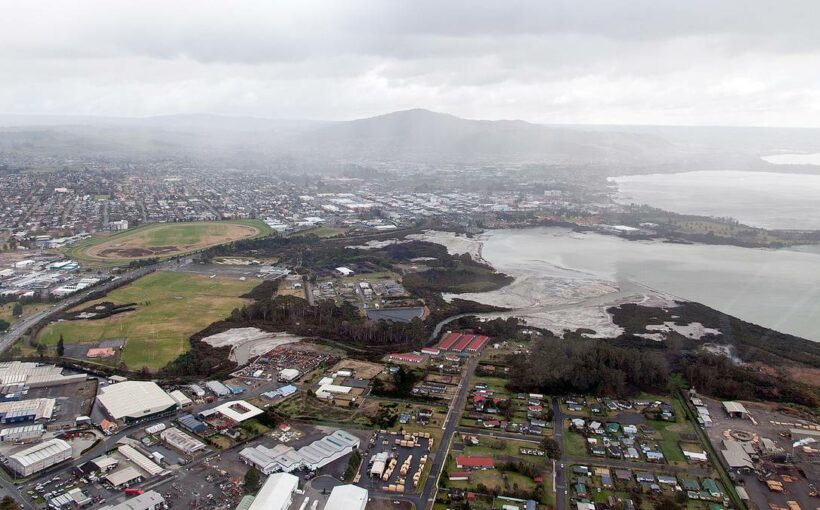Eating a pie, smelling like cigarettes, rude, and poorly presented – some emergency housing clients are showing up to rental viewings to “tick a box” to stay in cheaper accommodation, rental agents say.
When they’re turned away, some ask for a letter to prove they showed up, one agent says.
The Ministry of Social Development (MSD) has confirmed clients in emergency housing need to show they’ve made reasonable efforts to look for other accommodation options.
“There is no set number required as we are realistic about the challenges of the private rental market,” housing acting general manager Kaye Cunningham says.
Simply saving money may be a factor.
Those who have lived in emergency housing for longer than seven nights pay 25 per cent of their income towards their accommodation costs – similar to what is paid in transitional or public housing.
People who qualify for the Accommodation Supplement – to help with rent, board, or home-owning costs – can get between $80 and $160 per week, depending on their relationship status and how many children they have.
However, rentals are becoming out of reach, with data from Trade Me showing that the median weekly rent in Rotorua in December jumped to $460 – an increase of 24 per cent over two years from $370 in December 2018.
Rotorua Property Investors Association president Debbie Van Den Broek said they get a lot of people who were in emergency housing show up to rental property viewings, seeming like “they really don’t want the house”.
“They come in, they’re poorly presented, they’re rude,” she said.
“It’s like they didn’t want it … like they’d rather stay in emergency housing.”
The latest data from MSD showed there were 637 people on the Housing Register in Rotorua in September last year.
This included people not currently in public housing, and who were ready to be matched to a suitable property.
Rotorua Rentals director Pauline Evans said some clients came in still eating a pie or smelling like cigarettes, then asked for a letter to prove they showed up.
Over the past two weeks, about six emergency housing clients a day walked into the office asking for a rental – mostly single men, the demographic they had seen a recent spike in.
She said they did not have rental stock available in the price range available for emergency housing clients.
“When they come, and we say we don’t have anything at the moment, [the clients say] can you write me a letter, I’ve got to take a letter back just to prove that I’ve been here,” she said.
Applications were needed before viewings, and people who fit the bill as a good candidate for the property were invited to a viewing.
One of the first things they asked everyone who walked in was where were they living at the moment, which she said was one of three things: They have just been given notice by a landlord, living in a car, or under Work and Income.
“A lot of applicants are coming to the office, they’re poorly dressed, they’ve obviously just had a cigarette … they just want to go through a process to tick a box.”
She said, in her view, some of the emergency housing clients who were coming in treated finding a rental as “a bit of a joke”.
However, she believed some felt “defeated before they come into the office”.
“It’s quite intimidating for some of these guys to come in and face us … they know they don’t have a good appearance and communication skills … they’re already behind the eight ball.”
She said they were always respectful and tried to give them options of where else they could seek help.
However, Rotorua Budget Advisory Service manager Pakanui Tuhura said the “vast majority” of their clients in emergency housing couldn’t wait to get their own home and move out, with the “rare” client saying they were okay with their living situation.
He said these clients had the same concerns as everyone else in terms of the rental market.
“They want decent, affordable housing that is appropriate for them and their family.”
Kāinga Ora managed 686 homes in Rotorua and had delivered 67 new homes in the city since July 2019, a spokesman said.
Under the recently released Public Housing Plan, up to 450 additional public housing places are expected to be delivered across the region by 2024, with around 190 set for Rotorua.
Cunningham said they offered a range of support including ongoing financial support with rent and housing costs, one-off payments to cover bonds, rent-in-advance, and situations when unexpected costs.
The Government’s Aotearoa New Zealand Homelessness Action Plan introduced housing brokers, who help those in emergency housing or on the housing register
MSD also funded a training course called Ready to Rent which helps give clients skills and confidence to get and keep rental properties.
Source: Read Full Article

/cloudfront-ap-southeast-2.images.arcpublishing.com/nzme/772BPOTWKH5W5EOFW3QKVHN7UQ.jpg)
/cloudfront-ap-southeast-2.images.arcpublishing.com/nzme/KTJNOLSAHHHHBMCKPBT4NXZDSI.jpg)
/cloudfront-ap-southeast-2.images.arcpublishing.com/nzme/JNTX3LFCJKRQ7CA5TSHOGTPCZY.jpg)
/cloudfront-ap-southeast-2.images.arcpublishing.com/nzme/AOOBGGQ4TIM5OUTREO6D6V6EFU.jpg)